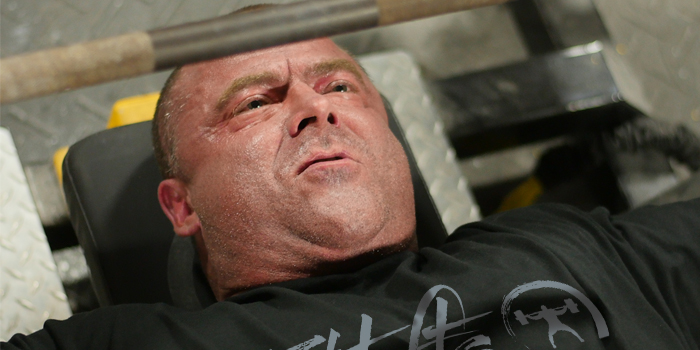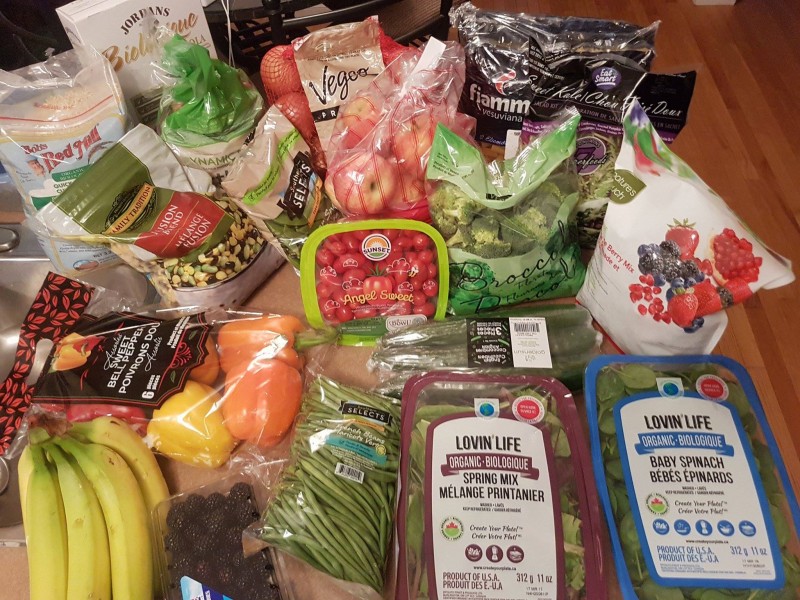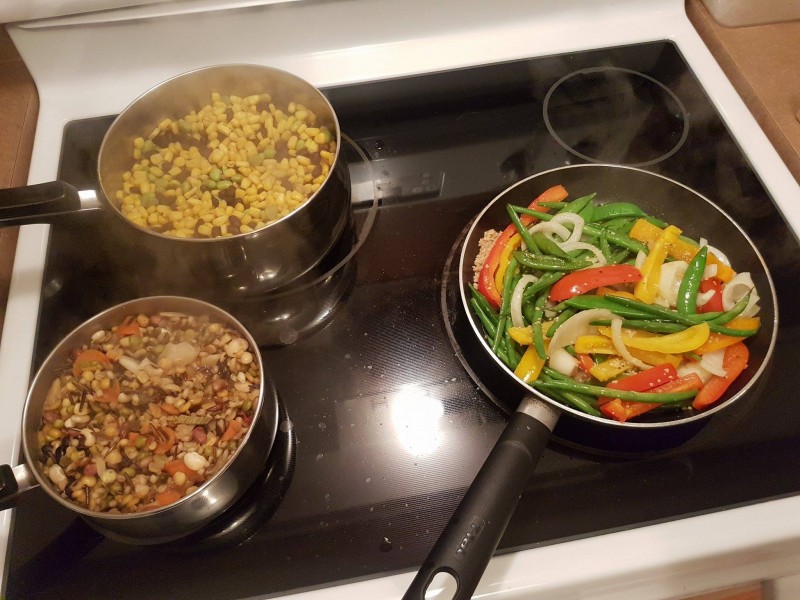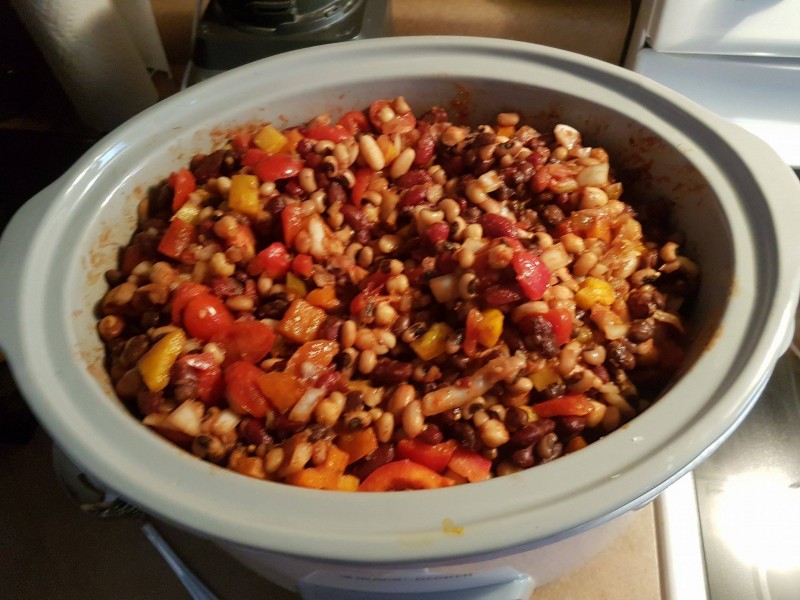
If you read my last article about gaining 100 pounds of bodyweight, you are aware that, as I approached the 300-pound bodyweight mark, I started to have some issues with sleep apnea, high blood pressure, and a few other consequences of walking around at that weight. I weighed in at the Arnold at 299.9 pounds and felt like shit! I felt lethargic, bloated, didn’t have much energy, and became aware that I was wheezing whenever I expelled any type of effort.
I’ve always been interested in nutrition and I never seemed to be able to get enough information. I’ve read a ton of books, diet programs, and really tried to understand how the human body functions and how to fuel it properly to achieve specific goals. In the strength world, it’s always been drilled into our heads to eat lots of protein. Usually, the recommendation is one to two grams of protein per pound of bodyweight if you want to get strong and grow muscle. If you want to get lean, you're often told to limit or cycle your carbohydrates and raise your fat intake.
RECENT: The Pros and Cons of a 100-Pound Weight Gain
I’ve always managed to reach my goals of specific body weights or levels of leanness when I commit to eat specifically to reach that particular goal. The leanest I got was for a photoshoot for our department's firefighter calendar. I combined intermittent fasting with a high protein and high-fat diet and refueled with carbohydrates twice a week. It definitely worked but I can’t say that I felt awesome doing it. I felt lethargic and weak and counted down the days until I could refuel with some carbs. When I focused on powerlifting, I just started to consume a lot more food and didn’t pay particular attention to whether it was a good whole food source, fast food source, or high glycemic shitty source like pizza and ice cream. I had no real strategy and anything was allowed. Boom, 300 pounds!
Never in a million years would I ever have believed I would consider trying to eat any kind of a diet that didn’t include meat. My dad was a provincial meat inspector, and while I was growing up he owned and operated a butcher shop and slaughterhouse. I was raised eating meat and potatoes every day.
My curiosity perked up when I was speaking to a few friends who changed to a plant-based diet primarily due to health issues, including colitis and gastrointestinal problems, and changing their diet resolved a lot of their issues. I just recently spoke with one of my friends who is a powerlifter, and he made the change to support his wife who wanted to try to improve her colitis. My first question was, “How did the diet change affect your strength?” I was surprised to learn his strength had not changed — in fact, he was continuing to make progress with his training. He said he had more energy, and didn’t feel like he had to take an afternoon nap anymore.
I decided a little while before the Arnold that I would take a couple of months off heavy lifting and make a few changes to try and get my health back to a more acceptable level, primarily to get off my blood pressure medication, sleep better, feel more rested, have more energy, and not feel like an elephant seal waddling and rolling around rubbing my bloated belly all day! Like I said, I’ve been feeling like shit, and this was the time to make a few changes.
I love watching documentaries; in fact, I would consider myself a documentary junkie. I found a few documentaries on plant-based diets and watched with an open mind. A lot of studies showed that many people who switched to a plant-based diet eliminated their dependency on blood pressure medications and statins to regulate cholesterol, resolved depression issues, generally became increasingly healthier, felt better, and had more energy. There were a few specific segments of interest that interviewed athletes who trained and competed at high levels of sport who relied specifically on plant-based diets. I became even more intrigued. Could you compete in powerlifting and continue to progress and increase your strength while fueling your body in this manner? Would you feel any different, or is there a chance you could feel and perform better?
Let the experiment begin. The plan is to eat primarily a plant-based diet. No meat, no dairy, and no simple sugars. I can’t say that I will be 100% because I think it may take a while to figure out how to prepare for this venture properly — and I’m only human, so there is always the possibility of a slip-up. But I want to commit to trying this for three or four months, see what happens, and weigh the pros and cons.
When we got home from the Arnold and decompressed from the weekend, we went shopping and bought a lot of food: vegetables, fruit, rice, steel cut oats, quinoa, beans, and for the first time since I can remember, we didn’t buy any meat. Mind was blown! We cooked up a big pot of rice and a big pot of mixed beans, which we planned on trying to make our staple go-to meal between some salads and oatmeal with nuts and fruit.
WATCH: Forgotten Benefits of Vegetables and Fiber
It’s only been a week and a half since the Arnold and trying this new style of eating. I refuse to label myself a vegetarian or vegan; this experiment is simply a change in food sources. In this short while, I’ve noticed a few immediate changes. I think I must be eating a truckload of fiber, because I have had to make a trip to the bathroom several times a day to evacuate my colon. I’ve never made this many trips to the boy's room before, and I think somebody needs to invent an ass chapstick or moisturizer because, in the beginning, you need it! Maybe I just need to toughen up down there.
The second thing I noticed is that I can’t believe how less bloated and distended I feel already. I’ve already lost 15 pounds, and I’m not sure if this is a placebo effect, but I already feel less tired and seem to have more energy. This is going to definitely take more time to establish a proper evaluation.
I started training again this week and honestly, I feel great! I’m not in meet prep mode, so I’m lifting a lot lighter, but I think I feel better than I have felt for a long time. I initially thought that eating meals without meat would suck, but eating rice and bean or chili mixtures has been unbelievably filling and tastes awesome!
Breakfast is usually steel cut oats with walnuts, dried fruit, and almond milk. I have two or three salads a day with apples, oranges, and bananas for snacks. Rice and bean concoctions twice a day seems to do the trick. I’m sure as we move forward with this experiment we’ll find some different recipes to try, but so far I have to admit, I’m impressed.
I’m going to keep monitoring my blood pressure and sleep, and I’d like to eventually go to the doctor to get blood samples checked to see what my cholesterol and lipid markers are compared to samples given in the past. Of course, training will be measured and logged, as always, to see how this affects strength moving forward.
So far this has been a lot easier to comply with than I initially expected, and I haven’t missed meat or dairy whatsoever. I’m excited to move forward and see how this plays out over the next few months. This experiment goes against all my beliefs and everything I’ve ever done in the past nutritionally, but sometimes you need to try different things for yourself and experiment to make your own opinion. Wouldn’t it be ironic if trying something completely different that goes against all the conventional wisdom turned out to be the best thing you did?
I’ll keep you posted.














Any estimate on about how many grams of protein you're getting daily on this way of eating?
This is awesome! I can't wait to hear and see your results. I went without meat for about 6 months and I found it very hard. I eat meat now about 5 times a week as I only use local sources and it is expensive. So keep all of us updated.
I'm not intentionally trying to lose weight but I'm down 17 lbs, my blood pressure has dropped averaging mid 120's systolic and high 70's diastolic which is a BIG improvement already. My BP has been as high as 180/100! I don't feel bloated and distended anymore and I'm sleeping through the entire night on a regular basis which is the first time since I can remember. My training is going really well and I definitely feel like I have a lot more energy (but I still like huffing ammonia) :)
NG: I really have no idea how many grams of protein I'm taking in a day... I'm sure I could figure it out but honestly I don't really ever want to measure macro's anymore and become a slave to measuring portions... I just want to keep it simple.
I'm honestly really surprised at how different I feel and I'm almost embarrassed to say this may be the best thing I've done in a long time. I'm excited to see how the next 3 or 4 months work out and especially interested to see how this effects my next meet prep.
I will definitely follow up with a report in a couple of months and keep everyone posted but so far... so good!
Thanks again!
Ken
You weighed 300 pounds so i assume you at a ton of calories. Try to eat that same number of calories, protien, carbs and fat on a vegetarian diet. See if the weight gain happens the same and THEN see if you feel the same. Otherwise, in my opinion, you aren't comparing the diets equally.
A diet of meat and plenty of vegetables, no processed food and proper calories is worth a try.
Super interested to see how you go with this .... and a credit to you for having a go considering how much we just believe we need animal fresh to get super strong.
Look forward to the update
Dave
Really interesting! How is it going? I started powerlifting, and I'm thinking about switching to a plant based diet. Although I am looking for more info about the combination of powerlifting/bodybuilding and a plant based diet.
Kind regards,
John